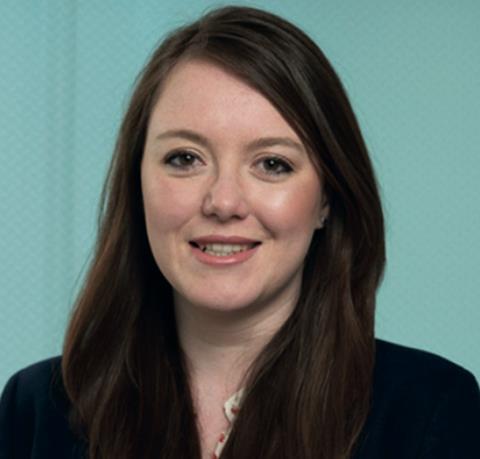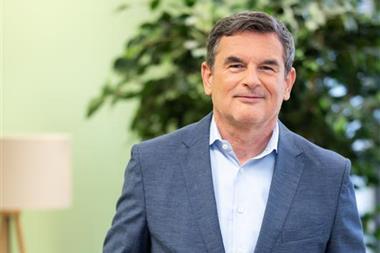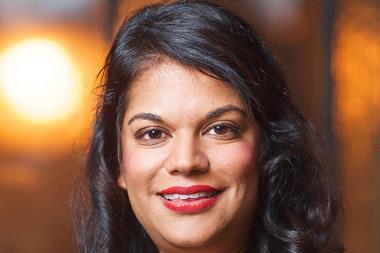Pensions can be seen as a dry industry, but an array of initiatives is seeking to support younger professionals
Key points
- Pension fund management is seen as a middle-aged profession
- Younger pension professionals can identify with new, young customer bases
- A number of networks exist to bring together younger people in pensions
- Mentoring is increasing in importance for developing people’s careers
- Genuine commitment and the willingness to spend time on mentoring are vital for success
Fairly or unfairly, pensions is an area which still has a dry and dusty image.
And while younger generations may well take their own retirement saving seriously, the pensions profession does not immediately spring to mind as a place to start their career.
Certainly, its movers and shakers appear to be those of a relatively mature age, at least in the UK.
Why is this?
“I think there is a widespread misperception about the value of younger voices,” says Caroline Escott, senior investment manager at Railpen and chair of NextGen, a scheme aimed at promoting cognitive diversity within the pensions industry (see box). “Where young people make it into senior roles in our sector, they have often had to rely on a genuine, deeply-held commitment from the individuals making hiring decisions to recruit differently, looking away from the usual pools of talent, instead proactively looking more widely.”
A survey of NextGen members in 2022 found that pension trustees were considered to be among the least diverse groups in the sector.
Escott became a trustee to the Standard Life Master Trust when she was 35. “I can vouch for usually being the youngest person in any gathering of the trustee community,” she says.
Emma Matthews was appointed head of investment at NOW: Pensions in March last year at the age of 30. “I believe a lack of awareness and understanding of how to make your money work best for you is one of the main barriers for young people participating and developing in pensions and investment,” she says.

“The focus on both the societal and technological aspects of pensions is key to attracting young talent”
Seda Peksevim
As a youngster, she aspired to be a Formula 1 race mechanic.
“But when a teacher invited an investment specialist to come in to talk about investment careers, I was hooked. I was glued to Bloomberg TV and sought investment-related work experience at any opportunity. It opened my eyes to the world beyond my life in Devon.”
Matthews considers her youth an advantage, particularly since NOW: Pensions has been open to all employers since the start of auto-enrolment.
“This means our customer base is different to those more traditional workplace pension schemes and providers, with a higher proportion of younger savers,” she says. “This is the first pension many will have, and being closer to their age I can add a different perspective in how to engage and relate with younger savers.”
She also believes the variety in her career – from direct experience with retail investors, to the sophistication of institutional investment solutions – is crucial.
Martine Menko, a professional member of supervisory boards in the Netherlands, is philosophical about a perceived lack of younger people working in pensions.
Menko chairs the board of the Pensions Scholarship Trust (PST), initially funded by IPE, which awards grants to postgraduate students focused on pensions issues.

“When a teacher invited an investment specialist to come in to talk about investment careers, I was hooked”
Emma Matthews
“Young people are more mobile throughout their career, and they change direction, moving between different industries,” she says. “This happens in other sectors as well. It is a fact of life which we must accept, and not make a problem out of it but look at solutions.”
She adds that young people are more motivated by purpose than before.
Menko advises: “There is only very little that you can do at an industry level, except try to explain the purpose of pensions. So you have to get them involved as a company. And that means being an attractive employer – it’s not just about money but other things as well, such as work-life balance and how your company achieves that purpose of pensions.”
She also suggests that companies woo younger recruits by emphasising how planning for the third part of one’s life matters, and that they can make a difference. Employers could also show that working at a company related to pensions can be exciting and at the same time unbelievably complex.
How do you make mentoring a success?
According to Escott, a successful mentoring scheme needs a wide pool of potential mentors and mentees so the right match between the needs of the mentee and the skills of the mentor can be made.
Where there have been mismatches in demand for and supply of mentors with certain experiences and skills, NextGen volunteers have undertaken targeted mentor recruitment drives to fill the gaps.
The second key ingredient, Escott says, is to involve individuals as mentors and mentees who are genuinely committed to learning from and supporting another person.
“Every mentor-mentee relationship will have its own rhythm, but each individual needs to dedicate the necessary time and focus to ensure it is a valuable experience,” she observes.
She says it is also important for any programme to get regular feedback both from mentors and mentees, so that adjustments can be made either within the individual relationship, or more broadly.
Year-on-year, the number of applications to the programme from mentors and mentees has grown. “You get out of it what you put in,” Escott says.
“So as a mentee, it helps to have a clear objective not only for the relationship overall, but also for each meeting – spending a few minutes thinking through your meeting agenda beforehand can be invaluable.”
And as a mentor, she says it helps if you are willing to be flexible: “Although regular, formal meetings will likely form the major part of the relationship, there will likely be out-of-cycle career moments that matter for your mentee, and at such times, the ability to seek advice from a mentor is particularly important.”
NOW: Pensions partners with Debate Mate, an organisation offering training and mentoring programmes to schools, students and teachers, which has mentored 3,500 students about pensions since 2020.
Having spent most of her career as a mentee, Matthews is now getting involved as a mentor.
“What makes a good mentor is the will to support others, the skill and experience in any profession but most useful in your field or industry, and the time to invest in each other,” she says. “Mentors add a valuable perspective and sounding board. In my experience, a mentor can provide a fresh perspective in the face of challenges.”
Other networks exist around Europe.
Nikki Trip, a 26-year-old sustainability specialist at investment consultants AF Advisors, set up Jongeren in institutioneel Pensioen (JIIP; Young People in Institutional Pensions) in October 2022.
For her bachelor’s thesis she ending up researching the role of Generation Y, otherwise known as Millennials, in the Dutch pensions sector.
“Since then, I have seen the potential impact of the pension sector on society, and wanted to be involved,” she says.
Open to under-35s, JIIP has 150 members from asset managers, sector regulators and supervisors, and intends to double that by the end of this year.
NextGen: Mentor programme to develop future UK pension fund leaders
Set up in 2018, the UK’s NextGen is run by a group of committed volunteers, and free to join for people of all ages, from any part of the pensions and investment industry.
The group’s aim is to help give new talent and ideas a voice in pensions by making the case for cognitive diversity – the inclusion of people with different demographic, social and experience characteristics – with senior pensions decision makers. It also provides practical support and training to members on both soft and technical skills.
A key way to provide the skills is through one of the UK industry’s first and largest mentoring schemes.
The scheme connects NextGen members with hand-picked mentors to provide support on specific projects, aspirations or areas to develop members’ careers.
It is free to join, with mentoring volunteers carefully matching mentors and mentees based on individual experiences and the particular areas on which mentees are looking for support (and where mentors can offer it) so both parties get as much as they can from the relationship.
Once the match has been made, the mentor and mentee are given the space to build the relationship that works for them, where each can learn from the other in a relaxed and unstructured way. Volunteers are on hand to support where necessary. “We’ve found that many of the connections that we have helped create develop into lasting and supportive relationships,” says Caroline Escott, NextGen’s chair.
Trip is a pension board trainee at a Dutch pension fund, within the PensioenLab Academie programme. This programme also provides selected young professionals with formal education by pension trainers Nyenrode SPO, including masterclasses in soft skills and topics such as environmental, social and governance investing.
In 2021, Seda Peksevim, a former grant recipient from the Pensions Scholarship Trust, founded Pension Research & Consulting (PRC) in Turkey to initiate academic and industry projects in four main areas: optimal design of mandatory and auto-enrolment pension systems, life-cycle fund design, behavioural and technological tools to promote pension savings, and developing performance benchmarks for pension funds.
As part of this, PRC runs training courses for young people in pensions and encourages them to apply for internships within the sector. PRC is also keen to develop research and consulting projects in promoting pension savings, particularly in developing countries. The firm is assisted in this by its VIP members, which include Spanish pension-tech company Pensumo, Mexican actuarial consultancy Vitalis, and Polish pension company PFR Portal PPK.
“The visibility of pensions in developing markets is low,” says Peksevim, “We promote our activities to young people through social media announcements, and also have contact with universities in Turkey and European countries.”
PRC is now developing a course for future pension leaders which will be available online, to benefit students worldwide. It plans to agree on memorandums of understanding with pension centres to provide the course within universities and industries in different countries.
The focus on both the societal and technological aspects of pensions is key to attracting young talent, says Peksevim. “They see pensions as having a social purpose,” she says. “They want to enable pensions to provide a decent standard of living for retired people. But they also want to investigate the impact of technology – for example, blockchain technology – or tools making it easier to save, such as mobile phone applications.”
Youth versus experience
Menko has strong views on appointing younger people to pension fund boards. “The question is, do we prepare them enough or is it just a ‘tick-box’ exercise?” she says. “Are we ‘throwing them to the lions’ just to comply? Are they equipped to deal with the complexity of issues?”
She says it is not so much about age, but the way of thinking: “We need to take their point of view into the equation, but do young people really think in a more diverse and long-term way than somebody middle-aged?” On the other hand, if it comes to IT and cyber technology, for example, she says you need young people: “So get them on specific committees first and after some experience they can become board members later.”
In the Netherlands, pension fund boards must include at least one woman or one person under 40. This is required on a comply-or-explain basis.
“It’s good to set targets but they do not have to become a goal in themselves,” says Menko.
Matthews of NOW: Pensions adds: “I don’t believe age has necessarily had influence over my learning from being in the pensions and investment industry. What I recognise is the importance to speak up and share ideas. If you disagree, say why, explain your rationale – it’s the best way to push any industry forward.”
She believes her age will have influence and impact in relation to reaching net zero by 2050: “This is a NOW: Pensions goal, consistent with the global need to decarbonise that will last my working life.”


















